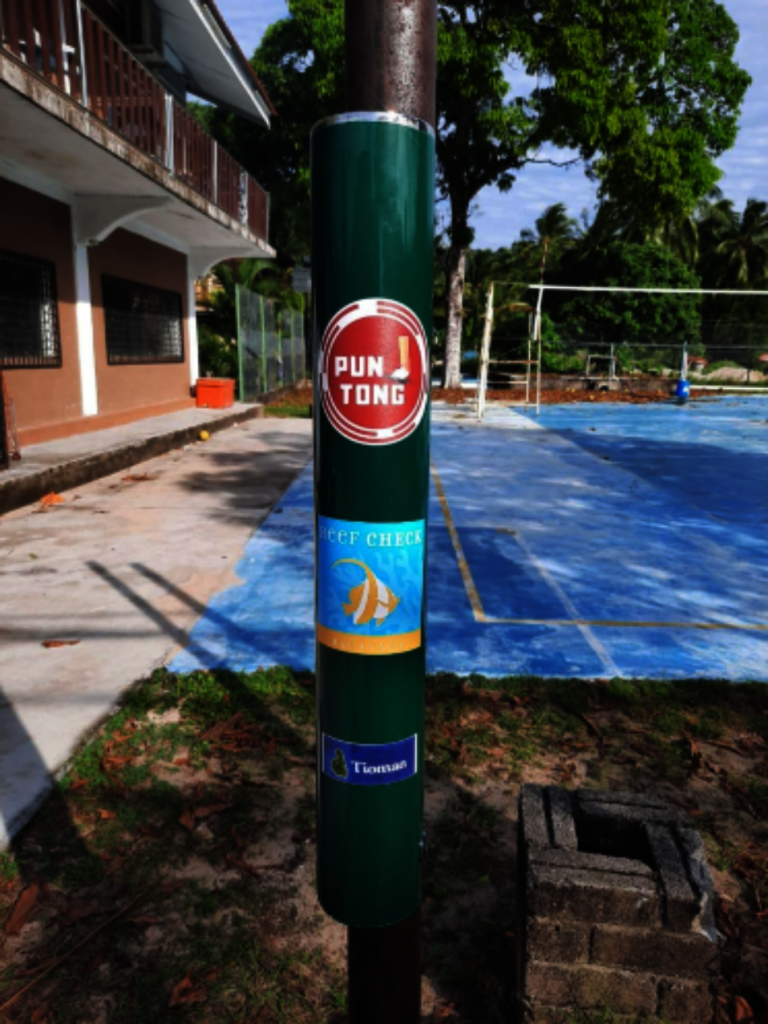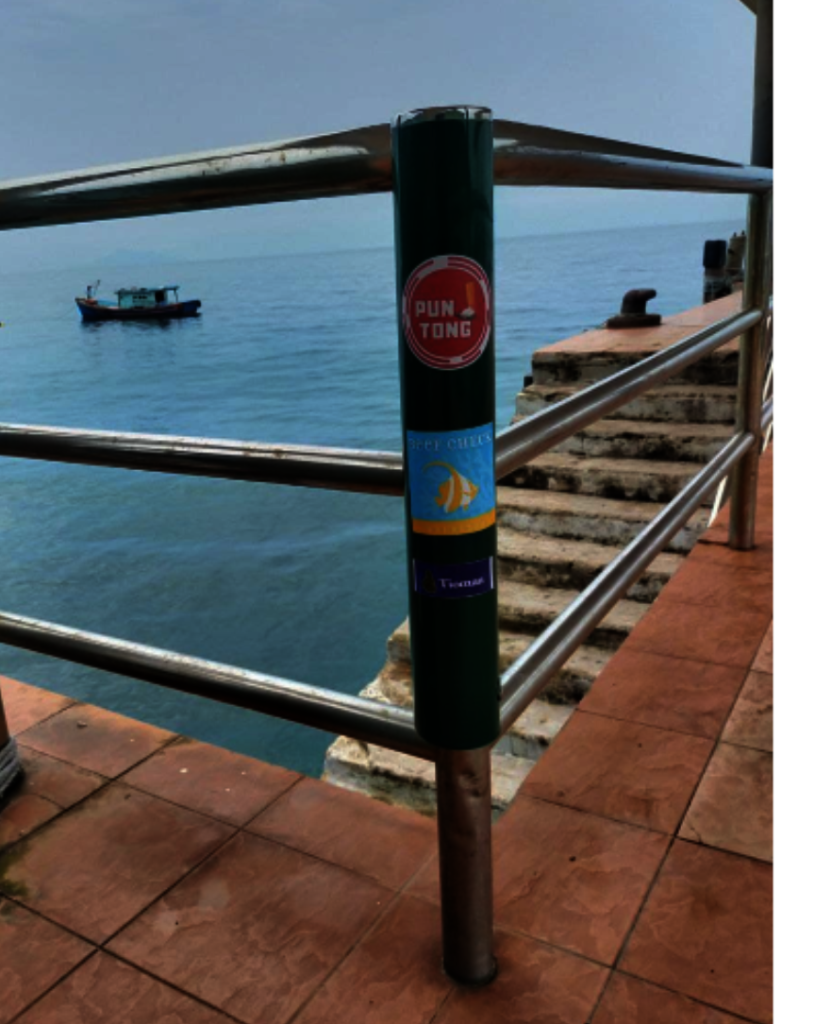By CHEN SUE YEE | Programme Manager
Cigarette butt is one of the most collected item on the world’s beaches, with a total of more than 60 million collected over 32 years. Cigarette butts are small and tend to go unnoticed but they are hiding almost everywhere. They are made of cellulose acetate, a man-made plastic material, and contain hundreds of toxic chemicals. While cigarette filters, or the plastic part of butts, can take up to 10 years to completely degrade, the chemicals they release can remain in the environment for many more years beyond the life of the cigarette butt itself. These tiny but toxic butts also cause significant harm to marine life. It is not uncommon for field researchers to find cigarette butts inside of dead sea birds, sea turtles, fish and dolphins.
In a measure to reduce cigarette butt pollution, a total of 25 cigarette butt bins were placed around Tioman Island and 15 bins around Mantanani Island. In each village, 3 to 6 bins were installed at places that are highly frequented by people. We hope these bins are fully utilised by the public and Tioman and Mantanani islands are free from cigarette butt pollution.
By CHEN SUE YEE | Programme Manager
By CHEN SUE YEE | Programme Manager
Project reports on GlobalGiving are posted directly to globalgiving.org by Project Leaders as they are completed, generally every 3-4 months. To protect the integrity of these documents, GlobalGiving does not alter them; therefore you may find some language or formatting issues.
If you donate to this project or have donated to this project, you can receive an email when this project posts a report. You can also subscribe for reports without donating.
Support this important cause by creating a personalized fundraising page.
Start a Fundraiser
